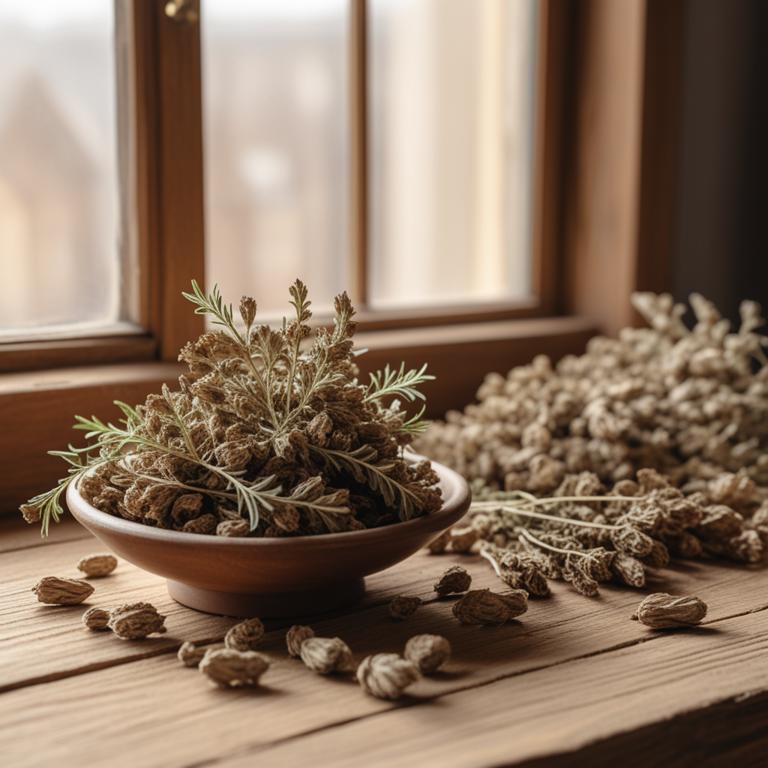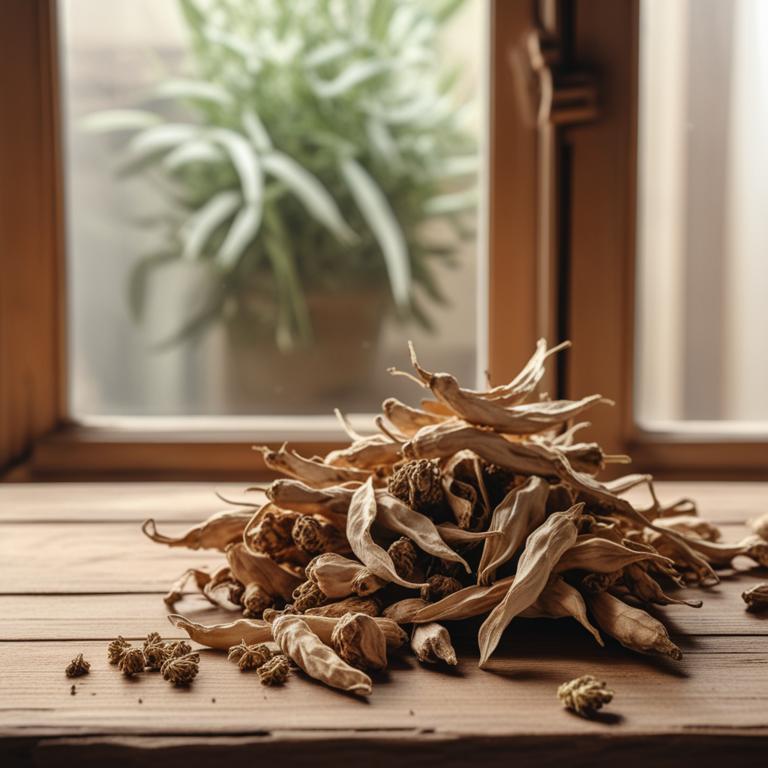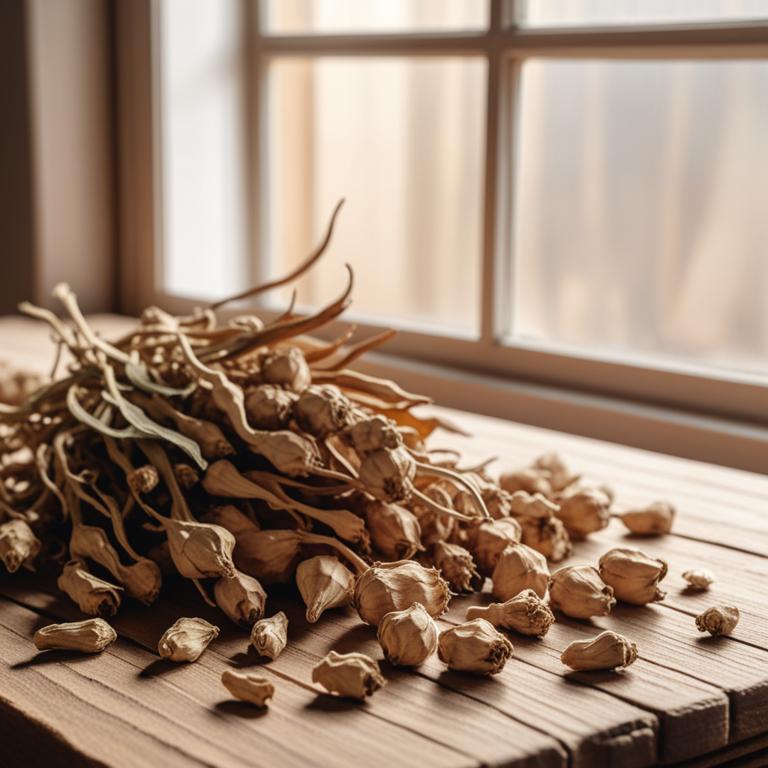Updated: Dec 1, 2024
Queasy Stomach Causes and Herbal Remedies: A Comprehensive Guide
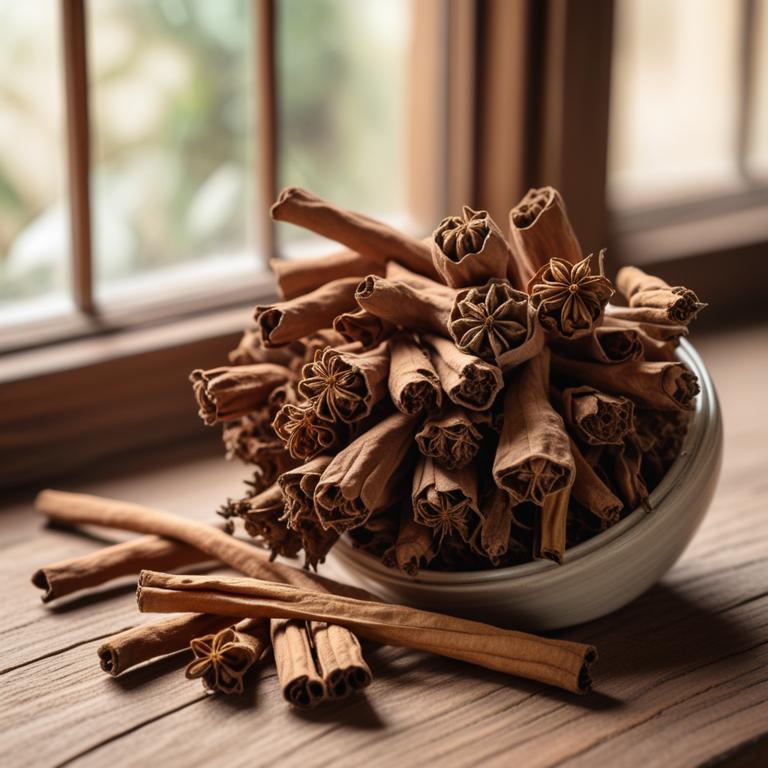
A queasy stomach is when you feel nauseous or sick to your stomach, often making it hard to eat or do daily activities.
It can be really frustrating, especially if it happens often. Queasy stomach can be caused by stress, eating too much or too little, or food poisoning. Sometimes, it can also be a sign of an underlying condition, like pregnancy or an infection. Herbal remedies like peppermint, ginger, and chamomile have been used for centuries to soothe a queasy stomach.
These herbs have natural properties that can calm the digestive system and reduce nausea. To use them, you can drink teas made from dried peppermint leaves or ginger roots. Simply steep a teaspoon of the herb in hot water for a few minutes, then strain and drink. You can also try taking ginger or peppermint capsules or applying ginger oil to your skin. Chamomile tea can also be helpful, especially if you're feeling anxious or stressed.
Some herbal supplements, like those containing fennel or licorice root, can also be effective in soothing an upset stomach.
Table of Contents
- What leads to a queasy stomach?
- What benefits are associated with using herbs for a queasy stomach?
- What are the primary medicinal plants effective against queasy stomach?
- Which herbal treatments are most widely used for queasy stomach?
- What herbs should you steer clear of if you have a queasy stomach?
- FAQ
What leads to a queasy stomach?
The main causes of queasy stomach are varied and can be quite uncomfortable.
One of the most common causes is food poisoning, which occurs when you eat contaminated food that contains harmful bacteria or viruses. These toxins can irritate your stomach lining, causing nausea and vomiting. Hormonal changes, particularly during pregnancy or menstruation, can also lead to a queasy stomach.
The fluctuating hormone levels can affect digestion and cause stomach upset. Migraines are another culprit, as the severe headaches and sensitivity to light and sound can trigger nausea and vomiting. Gastroenteritis, also known as stomach flu, is an inflammation of the stomach and intestines, usually caused by a viral infection, which can cause stomach cramps, diarrhea, and queasiness. Lastly, stress is a significant contributor to a queasy stomach.
When we're under pressure, our body's "fight or flight" response can slow down digestion, leading to stomach upset and nausea.
What benefits are associated with using herbs for a queasy stomach?
Using herbs for a queasy stomach can be really helpful.
For one, they can calm your stomach and reduce nausea. Some herbs have natural anti-inflammatory properties that can soothe digestive issues and help you feel better faster. They can also ease digestive spasms and cramps, which can be really uncomfortable.
Additionally, certain herbs can help regulate your bowel movements and prevent diarrhea or constipation. Some herbs may also have a calming effect on the body, reducing stress and anxiety, which can contribute to a queasy stomach. Using herbs can be a gentle and non-harmful way to manage digestive issues, and they can be consumed in various forms, such as tea, capsules, or even added to food.
This can be especially helpful for people who struggle with digestive issues or are sensitive to medications.
What are the primary medicinal plants effective against queasy stomach?

If you're feeling queasy in your stomach, there are some amazing herbs that can help soothe your digestive system.
Let's start with Zingiber officinale, also known as ginger. Ginger has natural anti-inflammatory properties that can help calm down your stomach and reduce nausea. It's especially good for people who get motion sickness or have a sensitive stomach. Another great herb is Mentha x piperita, commonly known as peppermint. Peppermint oil has a calming effect on your digestive system, which can help ease queasiness and indigestion. When you smell peppermint or drink peppermint tea, it can help relax your muscles and ease stomach cramps. Fennel, or Foeniculum vulgare, is another herb that's great for a queasy stomach. Fennel seeds contain compounds that can help ease bloating and gas, which can contribute to a queasy feeling.
Fennel tea or fennel seeds can help calm down your digestive system and make you feel more comfortable. Licorice root, or Glycyrrhiza glabra, is another herb that can help soothe your stomach. Licorice root has anti-inflammatory properties that can help reduce inflammation in your digestive system, which can contribute to a queasy feeling. Licorice root can also help heal stomach ulcers and reduce acid reflux. Finally, Cinnamomum verum, or true cinnamon, is another herb that can help ease a queasy stomach. Cinnamon has natural warming properties that can help stimulate digestion and relieve nausea. Cinnamon tea or cinnamon powder can help calm down your digestive system and make you feel more comfortable. These herbs work in different ways, but they all have one thing in common: they can help soothe and calm down your digestive system.
By using these herbs in moderation, you can help ease queasiness and indigestion and feel more comfortable.
Which herbal treatments are most widely used for queasy stomach?

Herbal preparations can be a great way to soothe a queasy stomach.
A decoction is a liquid made by simmering herbs in water, which can be particularly helpful for herbs that are tough or hard to digest. For example, ginger decoction can be very effective in calming stomach upset. On the other hand, a tea is a more delicate liquid made by steeping herbs in hot water, which can be gentler on the stomach. Peppermint tea, for instance, can help to ease nausea and indigestion. A tincture is a concentrated liquid extract of herbs, often taken in small amounts, which can be useful for herbs that are highly potent, like chamomile.
Infusion is a loose term that can refer to either a tea or a decoction, but often specifically refers to a cold-brewed tea. A capsule, which contains dried and powdered herbs, can be a convenient way to take herbal remedies on-the-go. Ginger, peppermint, and chamomile are just a few examples of herbs that can be very effective in soothing a queasy stomach. When choosing an herbal preparation, it's essential to consider the specific needs of your stomach and the type of herb that will work best for you. Some people may find that a decoction or tincture is more effective, while others may prefer a tea or capsule.
The key is to experiment and find what works best for you.
Additional Resources:
What herbs should you steer clear of if you have a queasy stomach?
If you have a queasy stomach, it's best to steer clear of some herbs that can make things worse.
Valeriana officinalis, also known as valerian, can cause stomach upset in some people, especially when taken in large doses. This is because it can slow down digestion and make your stomach feel even more uneasy. Rauvolfia serpentina, or Indian snakeroot, can also cause stomach problems, including nausea and diarrhea, due to its powerful effects on the digestive system.
Berberis vulgaris, or barberry, contains a compound that can irritate the stomach lining and make heartburn worse. Artemisia absinthium, or wormwood, has been known to cause stomach upset in some individuals, possibly due to its bitter taste and irritating properties. Hydrastis canadensis, or goldenseal, contains a compound that can cause stomach cramps and diarrhea in some people, especially when taken in high doses or for extended periods.
When you're already feeling queasy, it's best to avoid these herbs and opt for gentler remedies to soothe your stomach.
FAQ
Are there any specific herbs that can prevent queasy stomach?
Some herbs like ginger and peppermint are known to help ease queasy stomachs.
Ginger has natural anti-inflammatory properties that can calm digestive issues, while peppermint can help relax muscles in the stomach.
These herbs can be consumed as tea, added to food, or taken in supplement form.
Is it safe to use herbal remedies for queasy stomach during pregnancy?
Using herbal remedies for a queasy stomach during pregnancy can be a bit tricky.
Some herbs, like ginger, may help ease nausea, but others can be too strong or even cause problems.
It's best to check the ingredients and instructions carefully before using any herbal remedy, and be honest with yourself about how well it's working.
Are there any herbs that can reduce the frequency of queasy stomach?
Ginger is often used to help calm a queasy stomach.
It's available in tea, capsule, or fresh root form. Some people also find relief with peppermint, which can help soothe digestive issues.
These herbs may help reduce the frequency of an upset stomach, but it's best to try them in moderation to see how your body reacts.
Related Articles
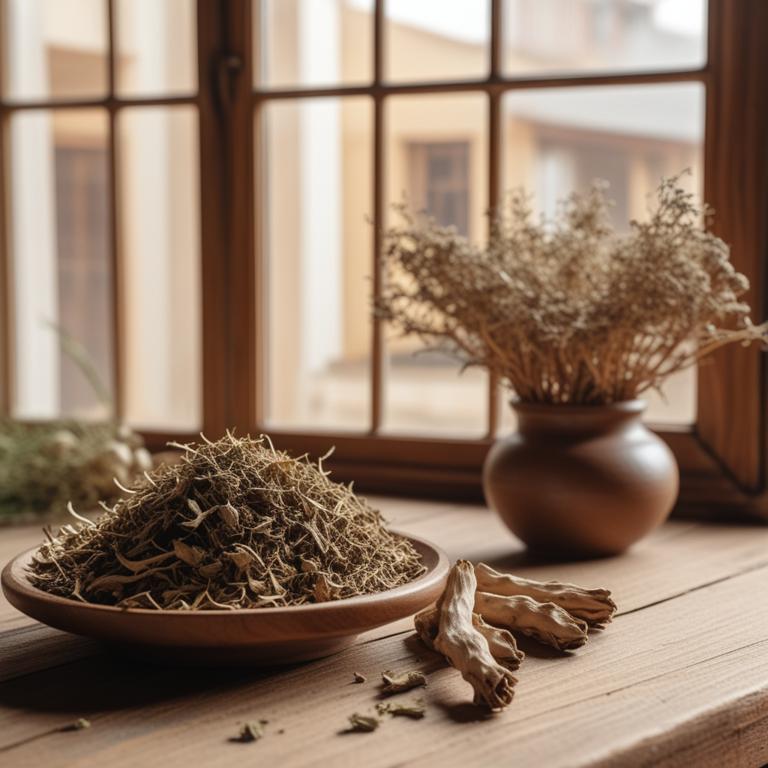
Causes, Symptoms, and Herbal Relief for Acid Reflux

Mucus in Stomach: Understanding the Causes and Medicinal Herbs for Relief
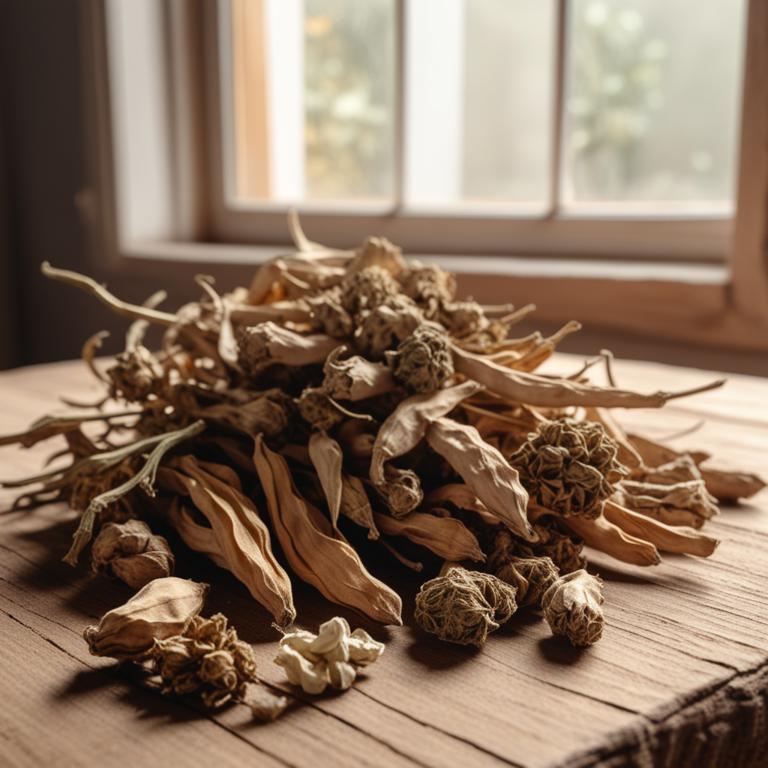
Gerd: Understanding the Causes and Benefits of Herbal Remedies
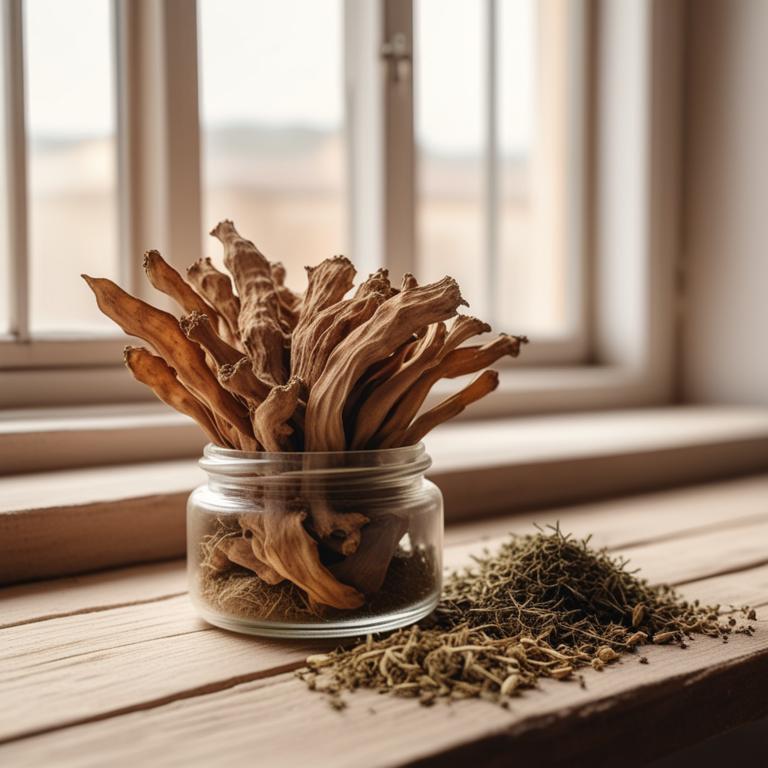
Gastroparesis Natural Treatment: Causes and Medicinal Herbs for Relief

Overcoming Loss of Appetite: Causes, Medicinal Herbs, and Herbal Remedies




